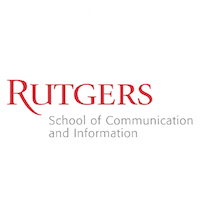Want to update the data for this profile?
Claim it!
Admissions
Acceptance Rate
226
Applied
165
Accepted
116
Enrolled
Applying
70
Application Fee - Domestic
Yes
Electronic applications accepted?
Yes
Applications processed on a rolling basis?
Application Deadlines
| Type | Domestic | International | Priority date |
|---|---|---|---|
| Fall deadline | August 1st | July 1st | Yes |
| Spring deadline | December 1st | November 1st | Yes |
| Summer deadline | April 15th | March 15th | No |
Entrance Requirements
| Exam | Details | |
|---|---|---|
| Master's Degree Exam | GRE General Test | |
| Master's Degree Requirements | Transcripts; recommendation letters; personal statement; resume |
| Exam | Details | |
|---|---|---|
| TOEFL: Required |
TOEFL Paper score: 587 TOEFL IBT score: 94 |
Tuition & Fees

Financial Support
| Financial award applicants must submit: | FAFSA |
|---|---|
| Application deadlines for financial awards | February 1 |
| Types of financial support available |
Institutionally-sponsored Loans Scholarship and/or loans Career or field-related internships Federal Work-Study Financial support for part-time students |
Student Body
291
Total Graduate Students
1%
International Breakout (representing other countries)
Race/Ethnicity
| Hispanic/Latino | 6.87% |
|---|---|
| Black or African American | 3.09% |
| White or Caucasian | 74% |
| American Indian or Alaska Native | 0% |
| Asian | 6.87% |
| Native Hawaiian or Pacific Islander | Not Reported |
| Two or more races | Not Reported |
| Unknown | 3.78% |
Gender
Male (19%)
Female (80%)
Faculty
42
Total faculty
Full-time - 23
Part-time - 19
Male (14)
Female (28)
Research
| Focus of faculty research: | Data science, information science, library services, management of information services |
|---|---|
| Externally sponsored research expenditures last year: | 0 |
Location & Contact
Address
School of Communication and Information
Rutgers, The State University of New Jersey
New Brunswick, NJ 08901-8554
United States
Rutgers, The State University of New Jersey
New Brunswick, NJ 08901-8554
United States
Contact
Lilia Pavlovsky
Director of the Master of Information Program & Associate Teaching Professor of Library and Information Science
Email: pavlovsk@rutgers.edu
Phone: 848-932-7576
Director of the Master of Information Program & Associate Teaching Professor of Library and Information Science
Email: pavlovsk@rutgers.edu
Phone: 848-932-7576
Rutgers University - New Brunswick


